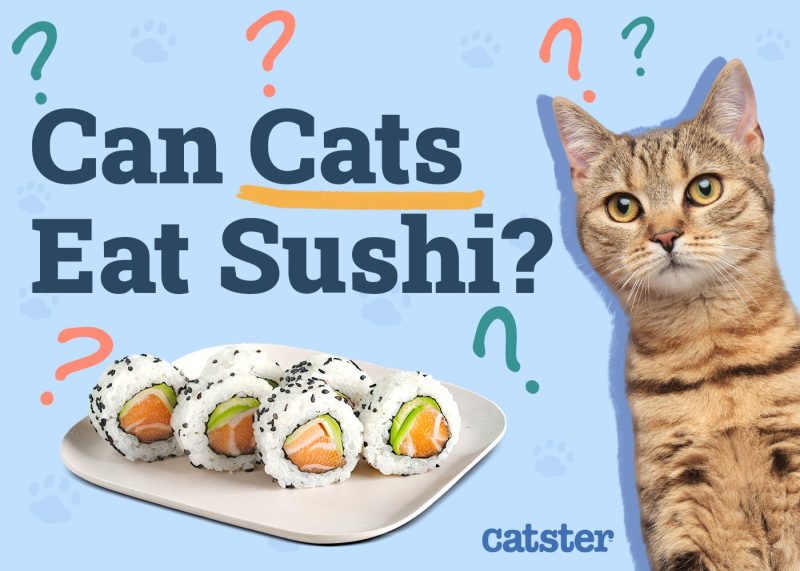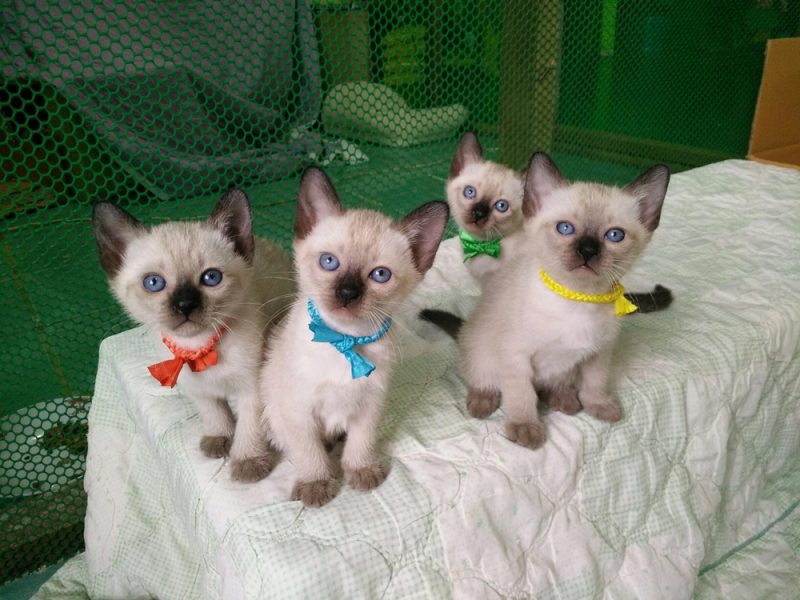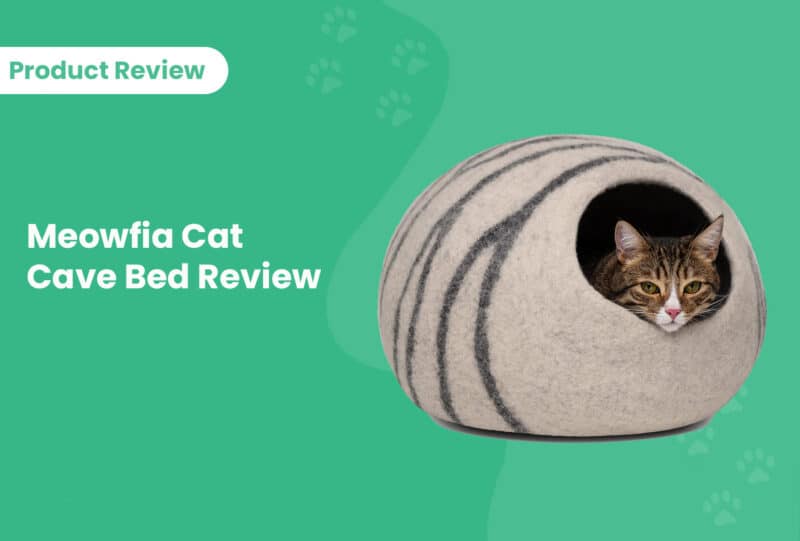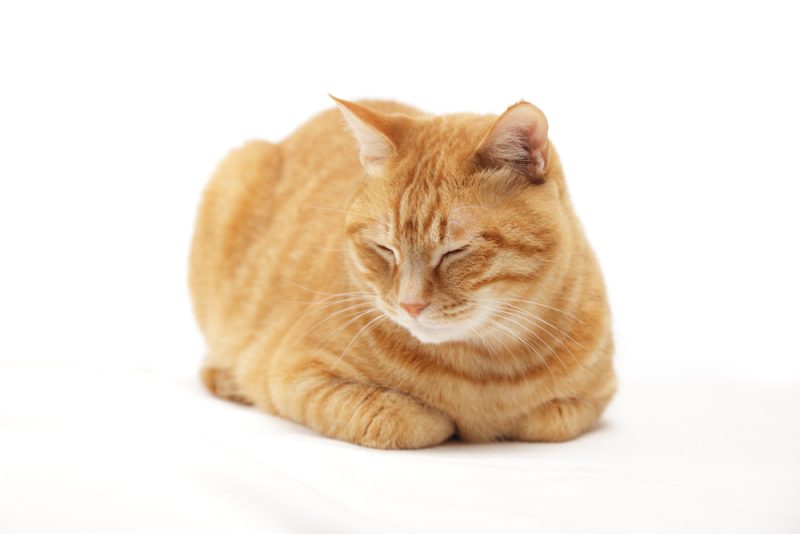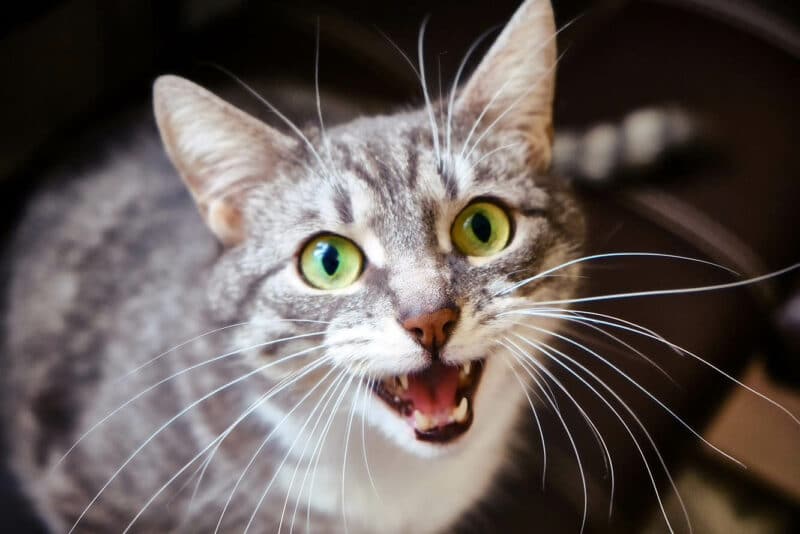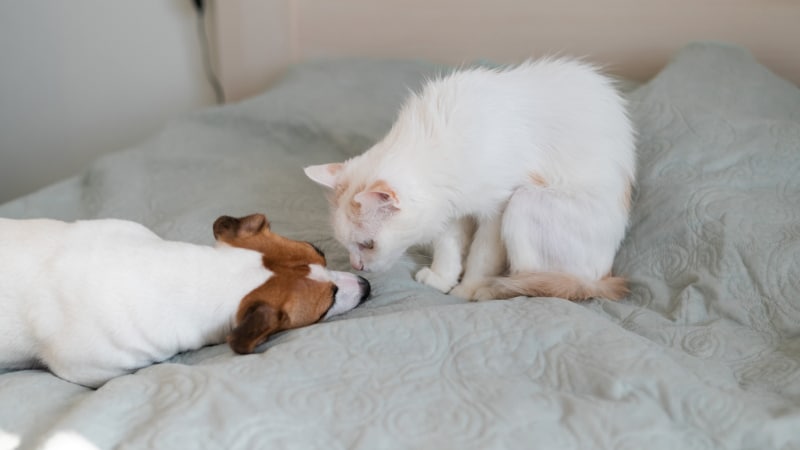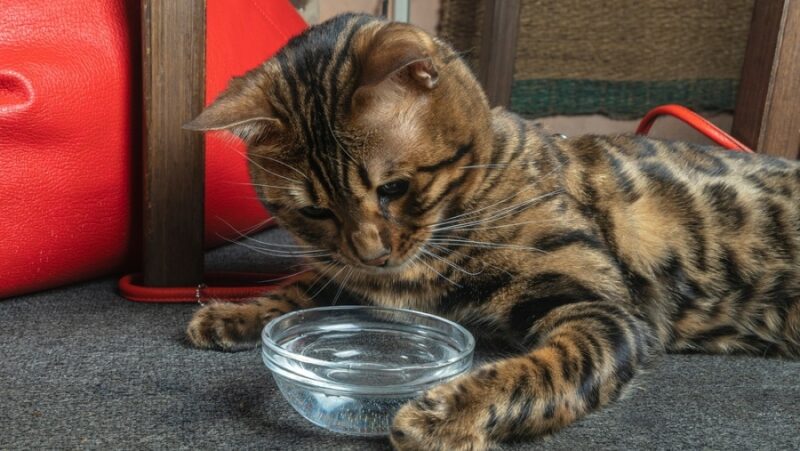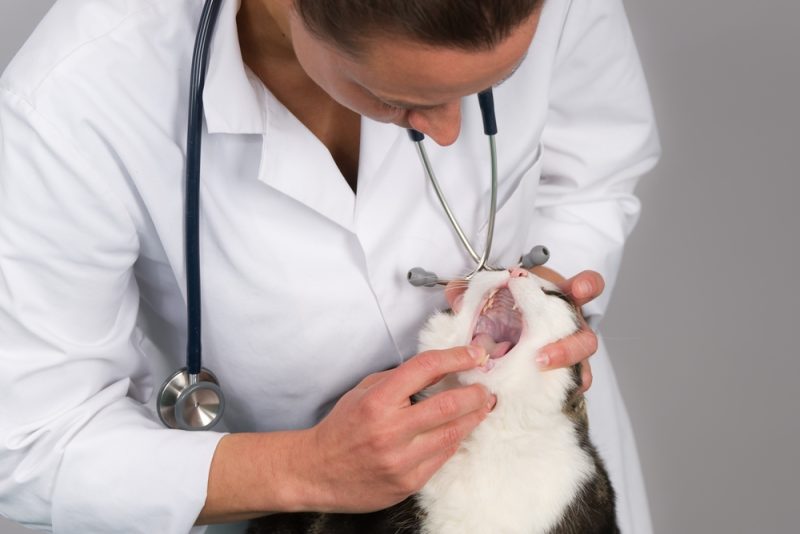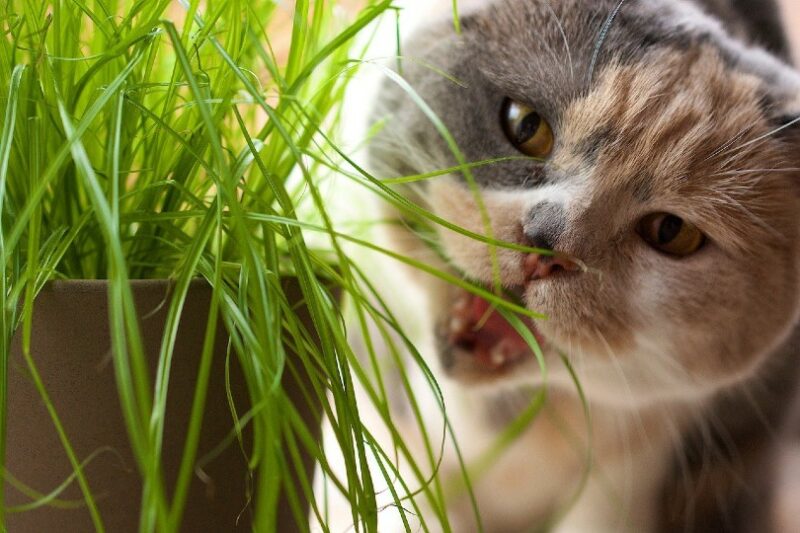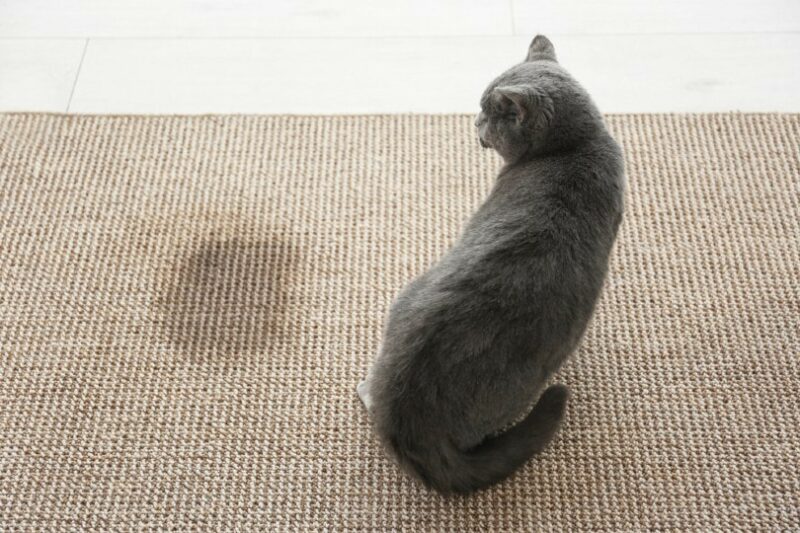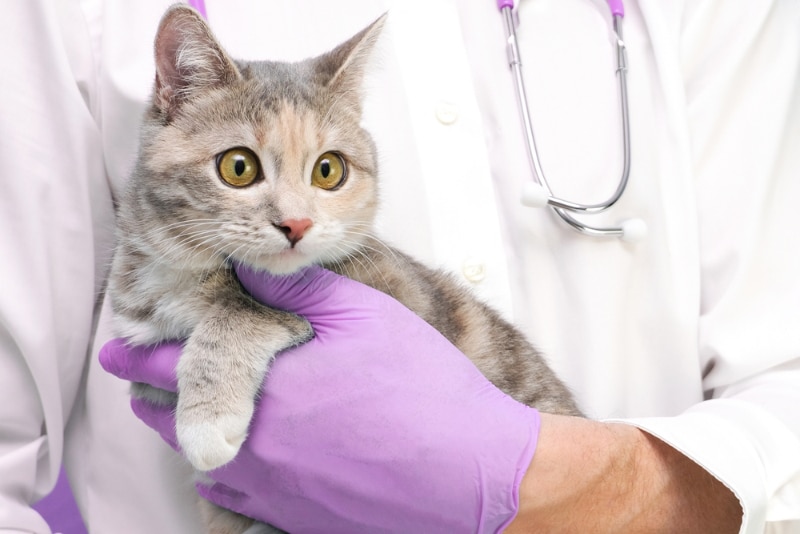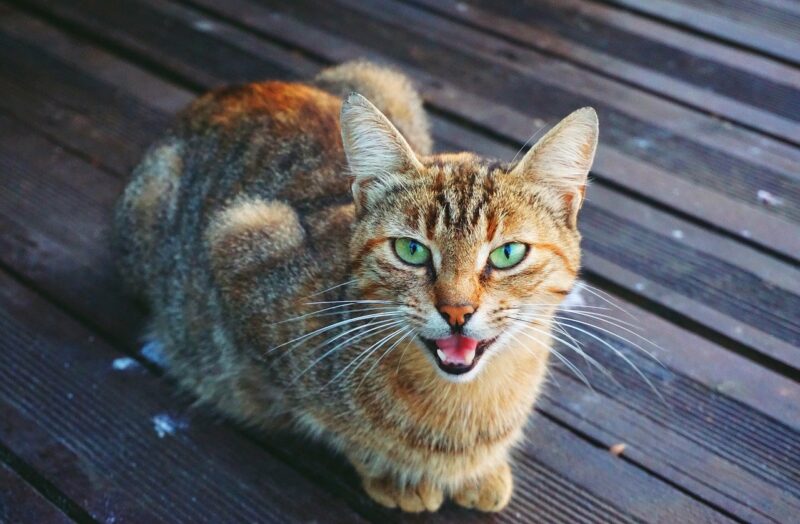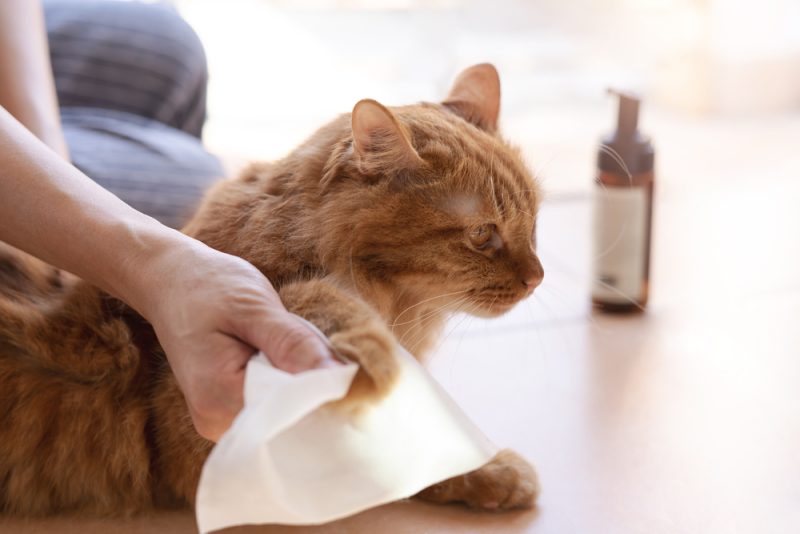In this article
View 2 More +Sushi is a popular food for many people, and since cats are supposed to like fish, it’s not uncommon to wonder if sushi is safe to give your cat. The short answer is no. Your cat should not be offered sushi. Your kitty may get digestive upset if it’s consumed, along with other health risks associated with eating raw fish.
If you like to eat a lot of sushi, keep reading while we go over the risks and safe ways of sharing it with your pet. We cover nutrition, dangers, and portion size to help you make an educated decision about the safety of this food for your feline.

Is Sushi Bad for Cats?
Let’s break down this popular dish by ingredients.
Raw Fish
- Allergies — As strange as it may seem, cats can be allergic to some kinds of fish. It can result in gastrointestinal problems like vomiting and diarrhea. Allergies can also cause itchy skin and inflammation. Itchy skin can cause over-grooming, leading to hair loss.
- Parasites — While your cat may very well come running at the smell of raw fish, and feral cats tend to hang out at fishing docks, uncooked fish can contain several parasites that can be dangerous for your cat to ingest.
- Mercury — Fish can contain heavy metals like mercury that can negatively affect the brain, kidneys, and lungs. Larger fish can store more mercury, so its consumption is more dangerous.
- Bacteria — In addition to parasites, raw fish can contain dangerous bacteria, such as Salmonella, Clostridium, and Listeria, which can cause food poisoning to your cat.
- Thiaminase — Raw fish contains thiaminase, which is an enzyme that works to destroy the thiamine (vitamin B1) in your pet. Thiamine is essential to carbohydrate metabolism in your pet, and without it, your cat can experience serious signs, such as incoordination, circling, dilated pupils, and seizures.

Sticky Rice
Your cat is a strict carnivore, and they have no specific requirement for carbohydrates in their diet. The rice used in creating sushi is bleached and stripped of its nutrients and is little more than empty calories that will quickly turn into sugar in your pet’s digestive system.
Learning about what your cat can and cannot eat is a crucial part of keeping them happy and healthy! Choosing a bowl to serve cat-friendly foods in is another important decision pet owners face. Satisfy the specific needs of your cat with the innovative design of the Hepper NomNom Cat Bowl. Learn why it’s our (and our cats!) favorite food and water dish here. At Catster, we’ve admired Hepper for many years and decided to take a controlling ownership interest so that we could benefit from the outstanding designs of this cool cat company!

Is Sushi Good for Cats?
There are no real benefits to giving sushi to your cat. They need a high-quality complete and balanced diet that suits their life stage and specific needs. Speak to a vet for professional tailored advice if you feel like you should add any protein or vitamins to your cat’s meals.
Need veterinary advice but can't get to the clinic? Catster recommends PangoVet, our online veterinary service. Talk to a vet online and get the answers and advice you need for your cat without having to leave your living room — all at an affordable price!

How Can I Feed Sushi to My Cats?
It’s best to avoid feeding your cat sushi. However, there are a few substitutes you can try to help you.
- Shrimp — Shrimp is seafood that often accompanies sushi and is safe for your cat to consume. Most cats like the texture, and yours may even play with it for a while before eating it.
- Seaweed — Seaweed is another ingredient used in sushi, and it’s safe to feed your cat. If you make your sushi fresh, you will likely have some remaining that you can use to treat your pet.
- Cucumber — You can find a cucumber in many sushi dishes, and this food is also safe to give your cat, but you will need to cut it into very small pieces or place it into a food processor to make it safe to eat.

Summary
We recommend preventing your cat from eating sushi. If your cat ate some while you weren’t looking, they should probably be fine; just know that there are dangers associated with regular feeding. Instead, we recommend one of the alternatives we suggested. In most cases, you will have at least a few of these ingredients if you make the sushi in your home.
Related Reads:
Featured Image Credit: kanami-y, Pixabay
